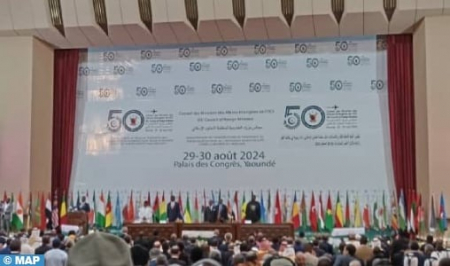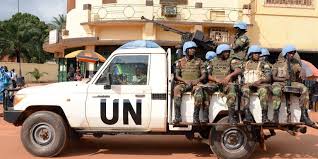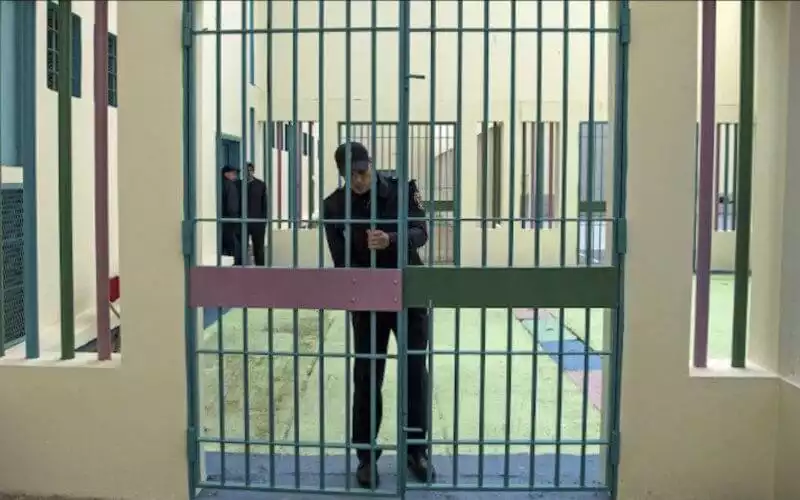The 50th session of the Council of Foreign Ministers of the Organization of Islamic Cooperation (OIC), held in Yaoundé, has recognized and praised the Atlantic initiative launched by King Mohammed VI. The initiative, which seeks to strengthen cooperation and integration among African countries along the Atlantic coast, was lauded as a significant step toward enhancing regional partnerships.
The Council highlighted that this royal initiative is in alignment with the ongoing Nigeria-Morocco gas pipeline project, emphasizing its potential to bolster infrastructure development in OIC member states. The initiative is also expected to accelerate economic integration, foster complementarity among African economies, and increase intra-community trade.
The Foreign Ministers of the OIC expressed their strong support for King Mohammed VI’s efforts to facilitate access for Sahel countries to the Atlantic Ocean. They noted that the initiative is designed to contribute to human development and to address pressing issues such as insecurity and poverty in the region.
In their closing remarks, the ministers underscored the strategic importance of this initiative, viewing it as part of Morocco’s ongoing and effective solidarity with its fellow African nations, particularly those in the Sahel region.
Head of the Moroccan delegation to the session, Mustapha Mansouri, Morocco’s ambassador to Saudi Arabia and permanent representative to the OIC,
renewed in his address the Kingdom’s steadfast support for the Palestinian cause, a support that remains resolute and unaffected by any international changes or circumstances.
“This support is not influenced by any changes or international circumstances, nor by political controversies or competitive posturing,” Mansouri asserted. He noted that this unwavering stance is deeply rooted in the conviction and faith of all Moroccans.
The diplomat also highlighted the growing challenges in the Middle East, particularly the geopolitical tensions exacerbated by the tragic situation in Gaza. He reaffirmed Morocco’s ongoing dedication to defending the Holy Sites, especially Al-Quds Asharif, which is of particular concern to King Mohammed VI.
The Kingdom’s approach combines political and diplomatic efforts with practical work on the ground through the Bayt Mal Al-Quds Agency. This agency focuses on preserving the legal status of Al-Quds, safeguarding its cultural identity, and supporting the population of Al-Quds.
Mansouri referred to the speech delivered by King Mohammed VI, on the 25th anniversary of Throne Day, where the monarch outlined Morocco’s position on the Middle East and the Gaza conflict. The King’s address reflected his deep personal interest and active involvement in the region’s developments, he said.
Morocco’s position, as explained by Mansouri, includes support for constructive initiatives aimed at finding practical solutions, achieving a sustainable and tangible ceasefire, and pursuing a definitive resolution to the conflict, rather than merely managing the crisis. The ambassador stressed the importance of initiating negotiations between the relevant parties to revive the peace process based on a two-state solution.
Beyond the Middle East, Mansouri also underscored Morocco’s commitment to Africa, highlighting the Kingdom’s efforts to promote sustainable development and strengthen Islamic cooperation among African OIC member states.
He noted that Morocco is actively supporting African economies through regional development initiatives and concrete programs aimed at fostering prosperity and economic growth.
One such initiative is the Atlantic Initiative, which seeks to provide Sahara and Sahel countries with access to the Atlantic Ocean by leveraging Morocco’s capabilities and expertise.
Mansouri described this initiative as a promising endeavor that will contribute to the economic integration of these countries, improve living conditions, and promote values of tolerance and peaceful coexistence.
In addition, Morocco has expressed strong support for the upcoming OIC donor conference, set to be held in Saudi Arabia on October 26, 2024. The conference will focus on aiding refugees and displaced persons in northeastern Nigeria, the Sahel region, and the Lake Chad area.
During the ministerial council meeting, Bayt Mal Al-Quds Asharif Agency (BMAQ), an institution operating under the Al-Quds Committee chaired by King Mohammed VI, presented a report on its recent achievements, highlighted the efforts of the Al-Quds Committee and detailed the outcomes of its initiatives aimed at supporting the Palestinian population.
The report reviewed key programs and projects implemented or planned in Al-Quds, including the local restoration program, which has already targeted over 100 properties in the historic city and surrounding neighborhoods, the launch of a digital strategy for 2024-2027, social assistance to vulnerable groups and individuals with disabilities in Al-Quds, as well as cultural and social programs targeting youth and children.
The report also noted the period’s significant challenges, particularly the tragic events unfolding since October 7, 2023 and recalled that Morocco successfully transported food aid by land to the Palestinian residents of Gaza and the Holy City of Al-Quds.
The two-day session provided a platform for discussing key issues affecting the OIC member states and exploring avenues for enhanced cooperation.



